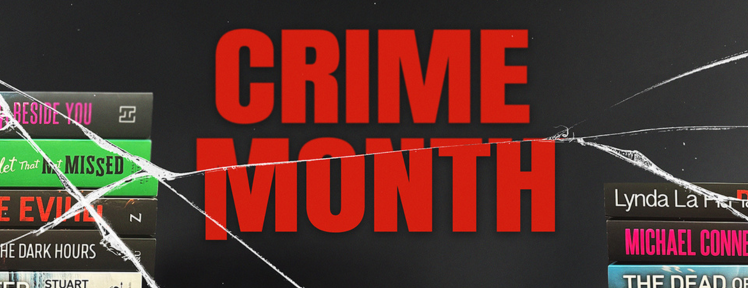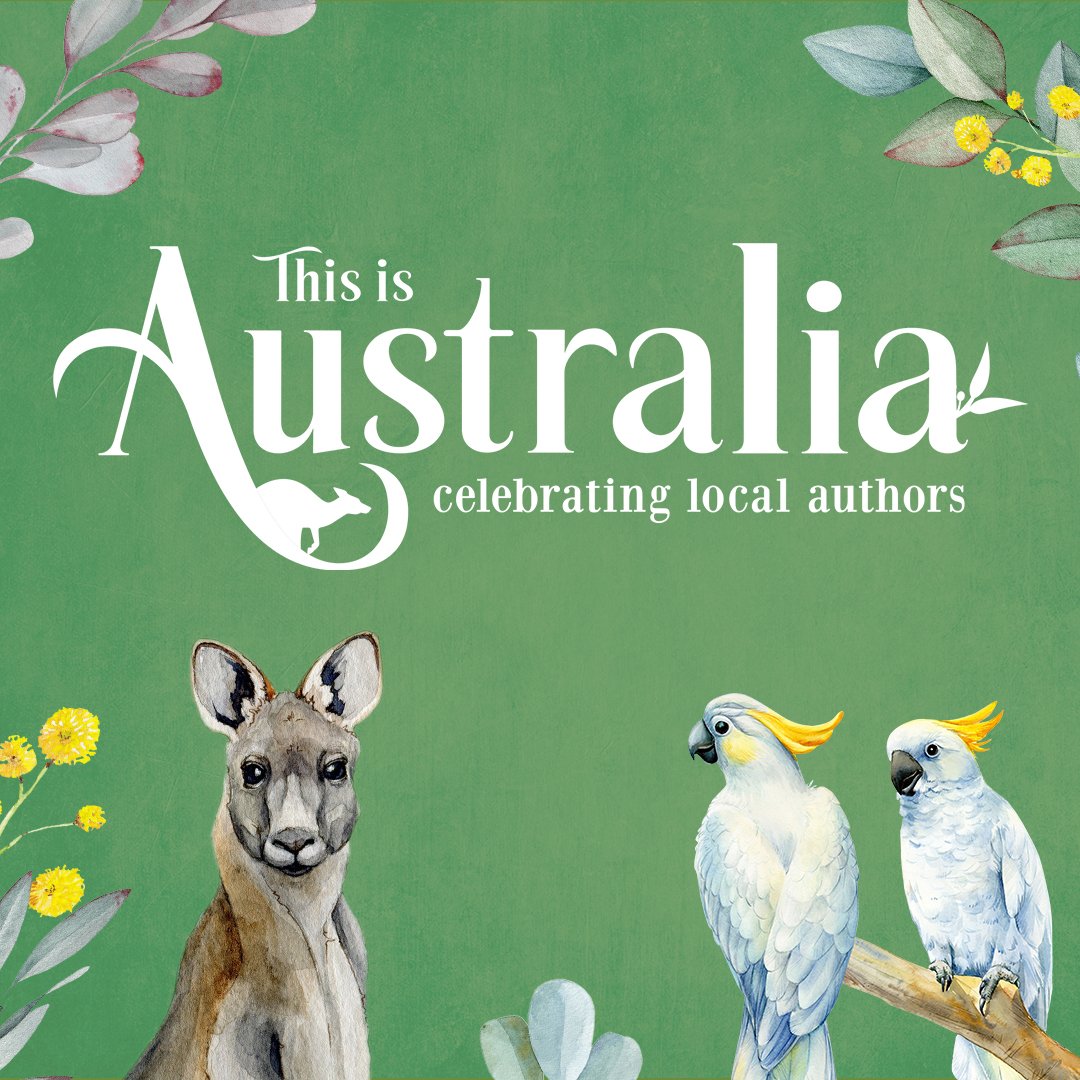Sophie Overett is an award-winning writer and cultural producer. Her stories have been published in Griffith Review, Going Down Swinging, Overland Online, The Sleepers Almanac, and elsewhere. She won the 2020 Penguin Literary Prize, as well as the 2018 AAWP x UWRF Emerging Writers’ Prize, and her work has been shortlisted for multiple other awards including The Text Prize and The Richell Prize. She is one half of Lady Parts, a podcast about women’s roles in genre cinema, and her debut novel, The Rabbits, will be published by Penguin Random House Australia in 2021. You can find her at sophieoverett.com.
Today, Sophie Overett is on the blog to answer some of our questions about The Rabbits. Read on …
Please tell us about your book, The Rabbits!
SO: The Rabbits is an intergenerational family novel with a dash of magical realism. When Delia Rabbit’s 16-year-old son, Charlie, goes missing, she’s forced to contend with the memories of the disappearance of her sister many years earlier. Only nothing is quite as it seems, and facing the memories means uncovering long buried family secrets.
Where did the inspiration for this novel come from?
SO: It came two-fold, really. I’ve always adored magical realism fiction, particularly when it functions as both a plot-driver and a metaphor, and I was interested in exploring the way that it could exist in suburbia. I find when we tend to think about magical realism, it tends to be set either in quite regional or rural areas, or within a sort of broader isolation from the ‘real world’. I was interested in exploring the idea of it being hidden in plain sight, and as a result, a secret only in so much as people might keep any secret from one another.
I was also really inspired by the heat and humidity of Queensland. I had the opportunity to take this book to Tin House Summer Writers Workshop in Portland, Oregon, and short story author Julia Elliott did a wonderful lecture on the relationship between surreal fiction and heat, in particular in Florida. It made me think a lot about Queensland, and about how much the weather feels like a part of you out there. The way it holds you like a friend and lingers like a shadow. It made me curious about the relationship between heat and magic, and that was something I really wanted to explore in the story. Hopefully I pulled it off!
Your novel follows the disappearing Rabbit family and their secrets. Why do you think people love to read about dysfunctional families?
SO: To quote Leo Tolstoy’s opening line of Anna Karenina: “Every happy family is alike; every unhappy family is unhappy in its own way.”
Dysfunction creates compelling, unique dynamics, I think, and the baggage and trauma and complexity of it all is both extremely fun and engaging. I think there’s probably also something to be said about it making us feel less alone too. After all, who has a normal family in the chaos of our times, haha?
The Rabbits was the winner of the Penguin Literary Prize in 2020. What did winning this prize mean for you and your career as a writer?
SO: Winning the Penguin Literary Prize meant everything to me! It’s sort of impossible to quantify in a lot of respects because not only was it validating after having worked on this story for so long (and having faced so much rejection over the years!), but it also gave me the opportunity to work with an incredible editorial team. I felt like I grew as a writer during the editing process, and that I learnt so much which I know I’ll take with me to my next stories. In that sense, it’s been the gift that’s kept on giving, and I’m really grateful for that.
Magical realism is one of those divisive genres that readers either love or hate. What do you love about reading and writing in that genre?
SO: More than anything, I love magical realism’s power to transport. While it’s always been a genre that’s close to my heart, I still remember reading Kelly Link’s Magic for Beginners when I was 21 and the way it felt like having a door inside me unlocked. Her ability to take your hand and lead you beyond the norm to these completely unique places as if it’s the most natural thing in the world is still something I deeply admire, and I’ve seen it in the words of so many other incredible authors I’ve read since – Isabel Allende, Karen Russell, Toni Morrison, Haruki Murakami – the list goes on!
It’s that invitation I think that I love the most in magical realism, and it’s an invitation that goes beyond just the story. It’s an invitation to lyricism and surrealism and metaphor and something that’s just a little bit strange, and it’s something I’ve loved as a reader and love being able to try and explore as a writer too.
‘It’s that invitation I think that I love the most in magical realism, and it’s an invitation that goes beyond just the story. It’s an invitation to lyricism and surrealism and metaphor and something that’s just a little bit strange.’
Your career is dedicated to uplifting women’s voices across many different storytelling mediums, such as film and literature. Can you share some thoughts about why this is so important to you?
SO: I’m really passionate about diversity in storytelling generally. I think we hear a lot about how there are no original stories anymore, and it’s something that I tend to agree with on a basic level. If you boil a story down to a one-line synopsis, odds are you’re going to find hundreds of books, movies, TV shows that can be reduced to the same one. What’s different though, is in the telling of those stories, and the voices that bring them to us. Voices are what transport us into other worlds because those voices bring with them lived experiences, empathy, culture, invention, and if the same voice (straight, white men being the big one) is delivering the same stories all the time, I think it not only robs us of new stories, but can stagnate the idea of what a story even is.
New and diverse voices compliment and enrich canon literature, but they also challenge, reinvent, and expand the breadth of it. I find that not only exciting, but essential to the survival, relevancy and evolution of storytelling in all its forms.
What does your typical writing day look like?
SO: I find that I’m a top-or-tail kind of writer. I write best either early in the morning or late at night, so tend to try and structure my writing days accordingly. If it’s an early day, I’ll tend to get up at 5, make a coffee, and then dive in and try and write for a few hours at a time. I’m completely obsessed with the Noisli app which offers a range of sound effects designed to help with productivity, and I love the fact that you can put them on a timer which really helps me to structure my writing time in a way that works for me. If it’s an evening day, it’s usually after I’ve been at work or out during the day, and am feeling creatively invigorated by something that’s happened. I’ll usually start at 7 or 8 then after I’ve had dinner, and provided I don’t have an early morning the next day, will write until I run out of steam.
What is the last book you read and loved?
SO: I just finished Maaza Mengiste’s The Shadow King which is a terrific novel about the invasion of Ethiopia by Mussolini’s men prior to World War II, and Ethiopia’s women soldiers who fought in it. Mengiste has such a beautifully lyrical style and she really deftly brings you into a really complex story. I didn’t know too much about this chapter of history before I read the book either, and have been pretty compulsively reading about the Italo-Ethiopia War ever since.
What do you hope readers will discover in The Rabbits?
SO: That’s such a big question, haha. I hope that readers connect with the characters and that they really feel the Brisbane heat and discover the magic that ebbs within it. I hope that there are parts of the story that move them, and that they enjoy their time with these characters. I know I did while I was writing them.
And finally, what’s up next for you?
SO: Currently, I’m adapting a screenplay I wrote a few years ago into a TV series! It’s been a really fun process to deepen the story world and expand the characters, particularly as I’m taking it from an isolated, single-character protagonist to much more of an ensemble story. I’ve also been working on an historical fiction novel which is set around Houdini’s tour of Australia in 1910. It’s an adventure-mystery novel, which is pretty different for me, even if it shares its magic heart with The Rabbits.
Thanks Sophie!
—The Rabbits by Sophie Overett (Penguin Books Australia) is out now.

The Penguins
How do you make sense of the loss of those you love most?
Delia Rabbit has asked herself this question over and over again since the disappearance of her older sister, Bo. Crippled by grief, Delia and her mother became dysfunctional, parting ways not long after Delia turned eighteen. Now an art teacher at a Queensland college, Delia has managed to build a new life for herself and to create a family of her own. Only more and more that life is slipping: her partner, Ed, has gone, her daughter, Olive, is distancing herself, and, all of a sudden, in the middle of a blinding heatwave, her sixteen-year-old son, Charlie, disappears too...







 What do we know about the Boy Swallows Universe Netflix show?
What do we know about the Boy Swallows Universe Netflix show?  Booktopia’s top thrilling fiction picks for Crime Month
Booktopia’s top thrilling fiction picks for Crime Month  Booktopia’s Top First Nations Book Recommendations for 2023
Booktopia’s Top First Nations Book Recommendations for 2023
Comments
No comments